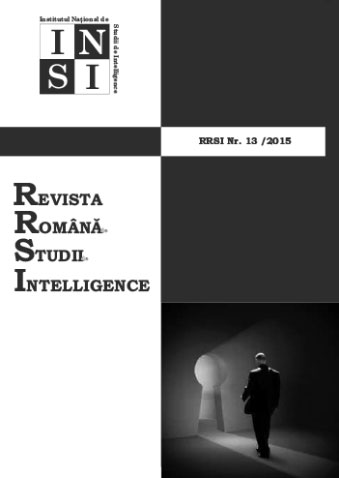INTERACŢIONISMUL SIMBOLIC CA FUNDAMENT ANALITIC PENTRU ANALIZA DE INTELLIGENCE
SYMBOLIC INTERACTIONISM AS KEY CONCEPTUAL FRAME FOR INTELLIGENCE ANALYSIS
Author(s): CRISTINA POSAȘTIUCSubject(s): Social Sciences
Published by: National Institute for Intelligence Studies
Keywords: symbolic interactionism; intelligence analysis; collective behavior; observer-expectancy effect; OSINT;
Summary/Abstract: The goal of this paper is to explore the potential of using sociological paradigms as analysis frameworks within the intelligence tradecraft. Although macro-orientated theoretical systems (e.g. structuralism, functionalism, conflict theories) have tried and tested uses in intelligence, especially when it comes to making sense of large-scale phenomena, events and trends, there is still little attention given to the paradigm of symbolic interactionism. At first glance, intelligence analysis has little to gain, knowledge-wise, from an empirically untestable scientific perspective which deals with the social micro-cosmos. Nevertheless, keeping in mind the fact that societal systems are constantly negotiated, consolidated and reformed through the most miniscule of daily interactions, understating the latter can help paint a correct picture of the „shared reality” of large or small groups at any given moment. I believe that intelligence practitioners can use insight derived from symbolic interactionism to better apply their tradecraft in an extensive palate of cases. Moreover, in an increasingly virtualized social universe, human interactions take new forms and generate new types of shared meanings and symbols, altogether changing the very social structure that fosters them. For intelligence practitioners that operate online, from all-source strategic analysts to OSINTers and SOCMINTers, understanding how this new medium emerges is of the utmost importance
Journal: Romanian Intelligence Studies Review
- Issue Year: 2015
- Issue No: 13
- Page Range: 143-150
- Page Count: 7
- Language: Romanian

